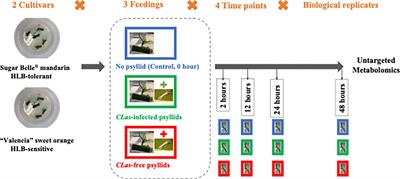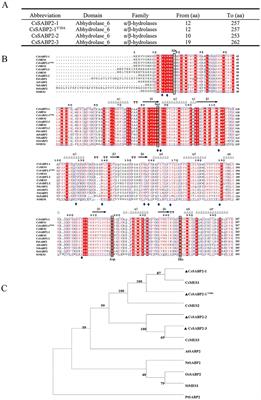ORIGINAL RESEARCH
Published on 20 Feb 2025
Transcriptomic analysis of early stages of ‘Candidatus Liberibacter asiaticus’ infection in susceptible and resistant species after inoculation by Diaphorina citri feeding on young shoots
doi 10.3389/fpls.2025.1502953
- 656 views


